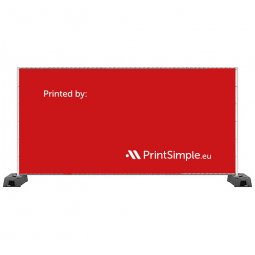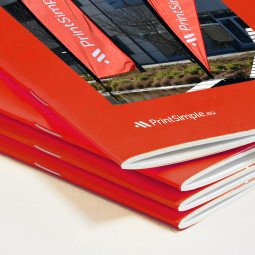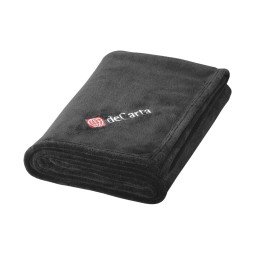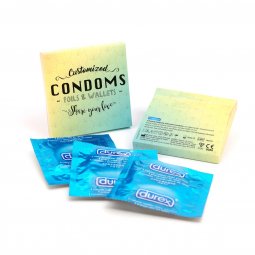What do the ESG certificates and labels stand for?
What is ESG?
ESG stands for Environmental, Social and Governance; three key factors that investors, stakeholders and consumers consider when assessing the sustainability and ethical impact of a company or organization.
Environmental factors refer to a company's effect on the natural world, such as carbon footprint, energy consumption, waste management and resource consumption. Social factors refer to a company's effect on people; including employees, customers and the broader community. This can include issues, such as labor practices, human rights, diversity, inclusion and community engagement. Governance factors relate to a company's internal management and structure, including leadership, decision-making processes and accountability mechanisms.
Tip: remember that in the eco-products category you can filter by the labels listed below.
Which labels are there?
OEKO-TEX
![]() OEKO-TEX is a globally recognized certification system for textile and leather products. The purpose of this label is to guarantee that textile and leather products are free of harmful substances. It is based on various chemical and environmental parameters. On the basis of these parameters, tests are carried out and the compliance with environmental and social standards is checked.
OEKO-TEX is a globally recognized certification system for textile and leather products. The purpose of this label is to guarantee that textile and leather products are free of harmful substances. It is based on various chemical and environmental parameters. On the basis of these parameters, tests are carried out and the compliance with environmental and social standards is checked.
Fair Wear
![]() Fair Wear is committed to improving working conditions in the garment and textile industry worldwide. This includes issues, such as freedom of association, fair pay, safe & healthy working conditions and child labor. Brands that join the Fair Wear foundation undergo checks on all these issues. When you buy a product with a Fair Wear label, you are buying a product that was produced under fair and safe working conditions.
Fair Wear is committed to improving working conditions in the garment and textile industry worldwide. This includes issues, such as freedom of association, fair pay, safe & healthy working conditions and child labor. Brands that join the Fair Wear foundation undergo checks on all these issues. When you buy a product with a Fair Wear label, you are buying a product that was produced under fair and safe working conditions.
GRS
![]() GRS stands for Global Recycled Standard. It is a certification standard for products made with recycled materials. The GRS label verifies that the product is made with a certain percentage of recycled material. It also confirms that the entire supply chain meets certain environmental and social criteria. The GRS label gives consumers assurance that the product they are buying is made from recycled material and meets strict environmental and social standards.
GRS stands for Global Recycled Standard. It is a certification standard for products made with recycled materials. The GRS label verifies that the product is made with a certain percentage of recycled material. It also confirms that the entire supply chain meets certain environmental and social criteria. The GRS label gives consumers assurance that the product they are buying is made from recycled material and meets strict environmental and social standards.
RCS
![]() RCS stands for Recycled Claim Standard. It is an international standard that serves to trace recycled materials through the supply chain, just like the GRS standard does. The big difference is that the RCS label can already be used from the moment that 5% recycled materials are used, while with GRS this must be at least 50%.
RCS stands for Recycled Claim Standard. It is an international standard that serves to trace recycled materials through the supply chain, just like the GRS standard does. The big difference is that the RCS label can already be used from the moment that 5% recycled materials are used, while with GRS this must be at least 50%.
Amfori BSCI
![]() The Amfori Business Social Compliance Initiative (BSCI) is a leading corporate initiative to improve working conditions in the global supply chain. It provides a framework and tools to help companies improve social performance in their supply chains, with a focus on labor rights and working conditions.
The Amfori Business Social Compliance Initiative (BSCI) is a leading corporate initiative to improve working conditions in the global supply chain. It provides a framework and tools to help companies improve social performance in their supply chains, with a focus on labor rights and working conditions.
PEFC
![]() PEFC stands for Programme for the Endorsement of Forest Certification. It is an organization that works to promote sustainable forest management and responsible sourcing of forest products. To be PEFC certified, a forest must meet strict ecological, social and economic criteria, including protection of biodiversity, respect for the rights of workers and indigenous people and long-term sustainability. The PEFC label assures consumers that the product has been produced in an environmentally and socially responsible manner.
PEFC stands for Programme for the Endorsement of Forest Certification. It is an organization that works to promote sustainable forest management and responsible sourcing of forest products. To be PEFC certified, a forest must meet strict ecological, social and economic criteria, including protection of biodiversity, respect for the rights of workers and indigenous people and long-term sustainability. The PEFC label assures consumers that the product has been produced in an environmentally and socially responsible manner.
FSC
![]() FSC stands for Forest Stewardship Council. It is an organization that promotes responsible management of the world's forests. To receive FSC certification, a forest must meet strict ecological, social and economic criteria, including protection of biodiversity, respect for the rights of workers and indigenous people and long-term sustainability. The FSC label assures consumers that the product was produced in an environmentally and socially responsible manner.
FSC stands for Forest Stewardship Council. It is an organization that promotes responsible management of the world's forests. To receive FSC certification, a forest must meet strict ecological, social and economic criteria, including protection of biodiversity, respect for the rights of workers and indigenous people and long-term sustainability. The FSC label assures consumers that the product was produced in an environmentally and socially responsible manner.
Prevented Ocean Plastic
![]() A "Prevented Ocean Plastic Label" is a labeling system used by companies and organizations to indicate that their product packaging or manufacturing process prevented a certain amount of plastic waste from entering the ocean. This label is often used to indicate the company's commitment to sustainability and environmental responsibility.
A "Prevented Ocean Plastic Label" is a labeling system used by companies and organizations to indicate that their product packaging or manufacturing process prevented a certain amount of plastic waste from entering the ocean. This label is often used to indicate the company's commitment to sustainability and environmental responsibility.
Reduced CO₂ footprint
![]() A reduced CO₂ footprint certificate is a document that certifies that measures have been taken to reduce the carbon footprint. These measures may include using renewable energy sources, adopting energy-efficient technologies, reducing waste and emissions, or offsetting carbon emissions through carbon credits or other means.
A reduced CO₂ footprint certificate is a document that certifies that measures have been taken to reduce the carbon footprint. These measures may include using renewable energy sources, adopting energy-efficient technologies, reducing waste and emissions, or offsetting carbon emissions through carbon credits or other means.
Water saving
![]() A water saving certificate validates that measures have been taken to reduce water usage. It serves as recognition of their efforts to conserve water and can be used as evidence of their commitment to sustainability and environmental responsibility.
A water saving certificate validates that measures have been taken to reduce water usage. It serves as recognition of their efforts to conserve water and can be used as evidence of their commitment to sustainability and environmental responsibility.
Blue Angel
![]() Blue Angel is an environmental label awarded only to products or services that have a reduced impact on the environment. Several criteria are taken into account, such as: sustainable materials, energy efficiency, avoidance of toxic and hazardous substances, ergonomic criteria, and so on.
Blue Angel is an environmental label awarded only to products or services that have a reduced impact on the environment. Several criteria are taken into account, such as: sustainable materials, energy efficiency, avoidance of toxic and hazardous substances, ergonomic criteria, and so on.
Bluesign
![]() Every item with a bluesign PRODUCT or APPROVED label is manufactured according to strict safety and environmental requirements. Environmentally harmful substances are then proactively eliminated at the beginning of the textile supply chain using Input Stream Management to minimize the impact on people and the planet.
Every item with a bluesign PRODUCT or APPROVED label is manufactured according to strict safety and environmental requirements. Environmentally harmful substances are then proactively eliminated at the beginning of the textile supply chain using Input Stream Management to minimize the impact on people and the planet.
Looking for information on more certificates & labels? Then visit the Ecolabel index website.



